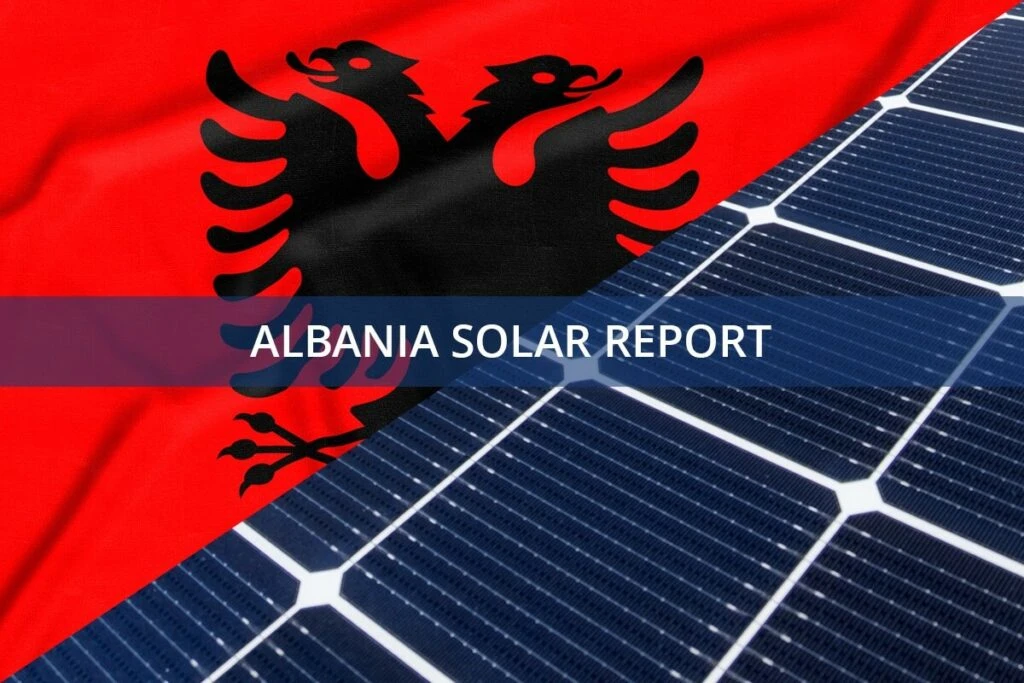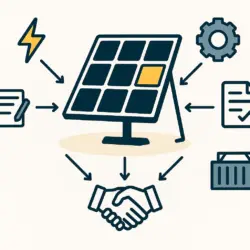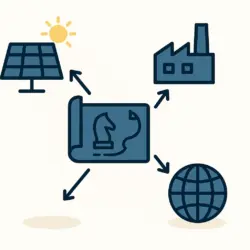Albania Hits 2025 Solar Target, Generating 10% of Electricity from the Sun
Albania has achieved a significant milestone in its renewable energy transition, successfully generating 10% of its total electricity from solar power in 2025. This achievement marks a major step forward in the country’s efforts to diversify its energy mix, enhance energy security, and position itself as a leader in sustainable development in Southeast Europe.
The Projects Powering Albania solar energy Surge
The foundation of this success lies in strategic, large-scale photovoltaic (PV) projects. The signing of two key contracts for solar energy parks in Hekal and Sheq-Marinas was a pivotal moment. These tenders, organized by the Energy Community Secretariat, are set to add a combined 200 MW of solar capacity to the national grid. The government secured this energy at highly competitive rates of €47.99/MWh and €44.98/MWh, respectively, demonstrating the increasing economic viability of solar power.
Further bolstering this capacity is a new 50 MW PV park in the central municipality of Belsh, supported by a substantial grant from the European Union. The successful implementation of these projects relies on a sophisticated solar panel manufacturing process and a stable supply chain for essential solar panel raw materials. Understanding the basics of solar panel manufacturing is key to appreciating the scale of such national initiatives.
A Strategic Vision Beyond 2025 for Albania solar energy
This 10% milestone is not an endpoint but a stepping stone in Albania’s broader clean energy strategy. The government has set explicit targets for 2030, aiming for 0.5 GW from solar, 0.3 GW from wind, and 2.5 GW from hydro, bio, and other renewable sources. This long-term vision showcases a commitment to sustainable energy that mirrors ambitious national programs worldwide, from Rwanda’s solar project to power 1,000 villages to Bahrain’s renewable energy initiatives.
Energy Minister Belinda Balluku has highlighted this progress at international forums, emphasizing Albania’s path toward regional energy integration and leadership. Continued investment and support from partners like the EU are crucial for expanding this solar infrastructure.
Implications for Europe and Germany Regarding Albania solar energy
Albania’s renewable energy success has positive ripple effects across the continent. For homeowners and tenants in Germany, greater energy diversification in Southeast Europe contributes to the stability and security of the entire European grid. As more nations generate clean, low-cost electricity, it helps mitigate price volatility linked to fossil fuels. The impressively low tender prices achieved in Albania signal a broader trend of decreasing renewable energy costs.
This progress is part of a massive global shift. While Albania’s achievement is significant for its scale, it occurs as global solar module capacity is projected to reach 1.8 TW by 2025, largely driven by the stunning growth of China’s PV installations. This contrasts with other regional approaches, such as the development of the Turkey nuclear power plant, highlighting the diverse paths nations are taking to secure their energy futures.
By successfully integrating solar power, Albania not only meets its climate goals but also provides a powerful model for a sustainable and secure energy future in the region.
If you’re inspired by how countries are harnessing solar power and want to understand the industry from the ground up, consider enrolling in our free e-course on solar panel manufacturing.



